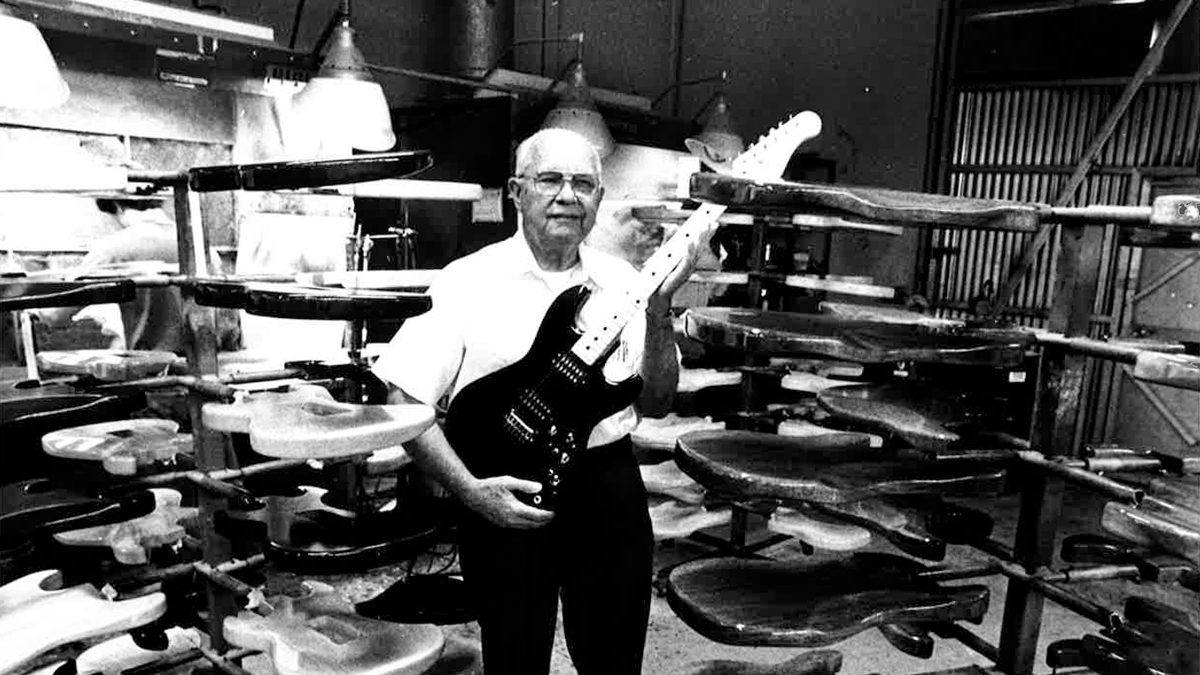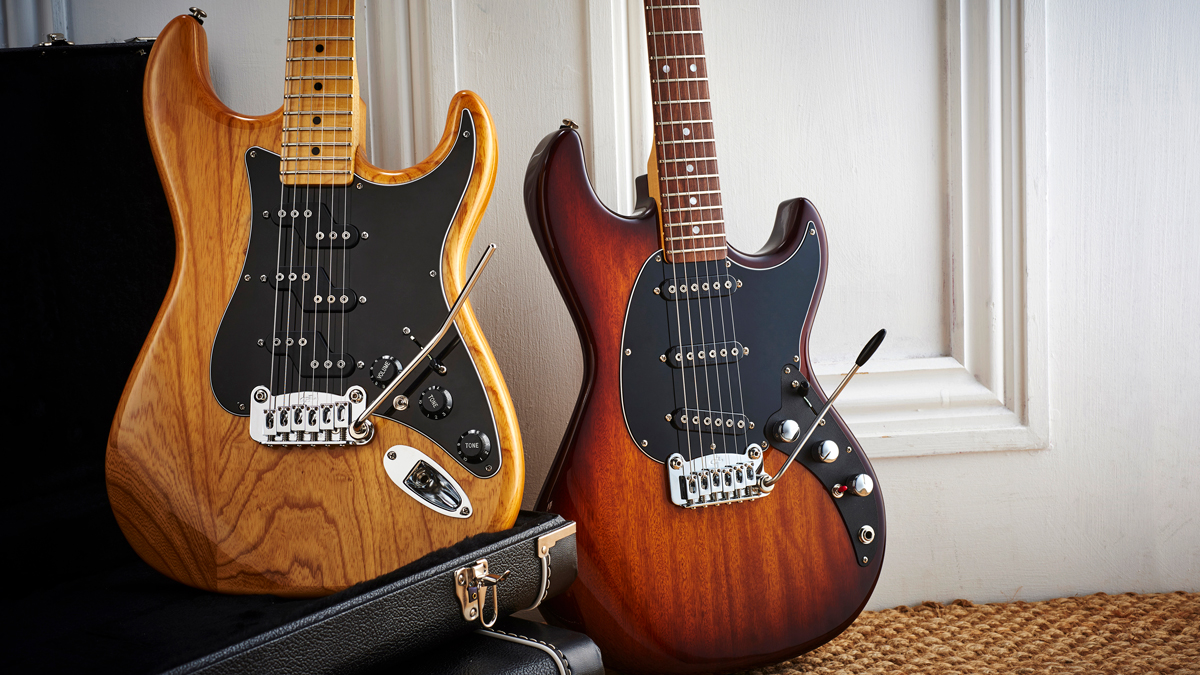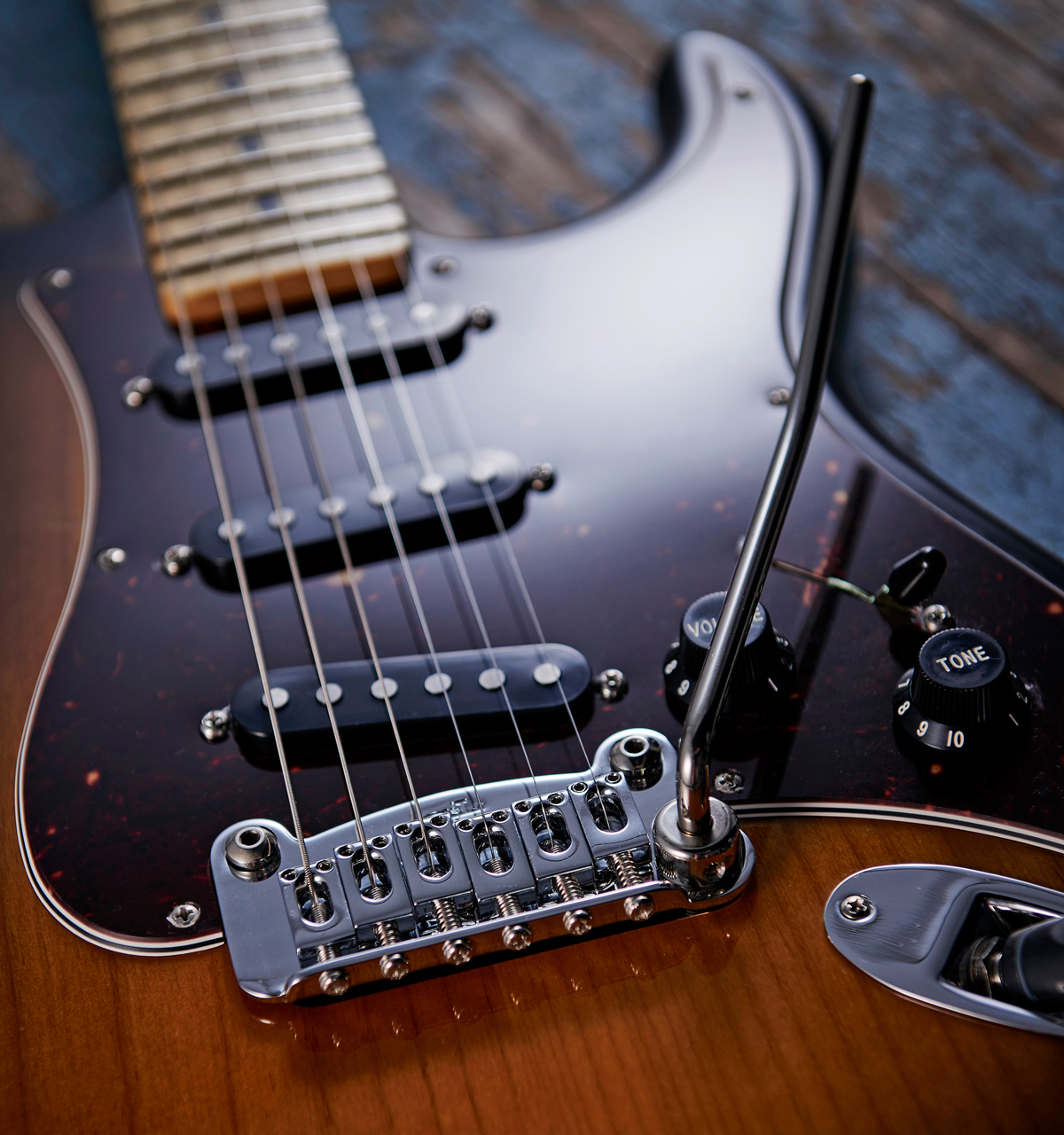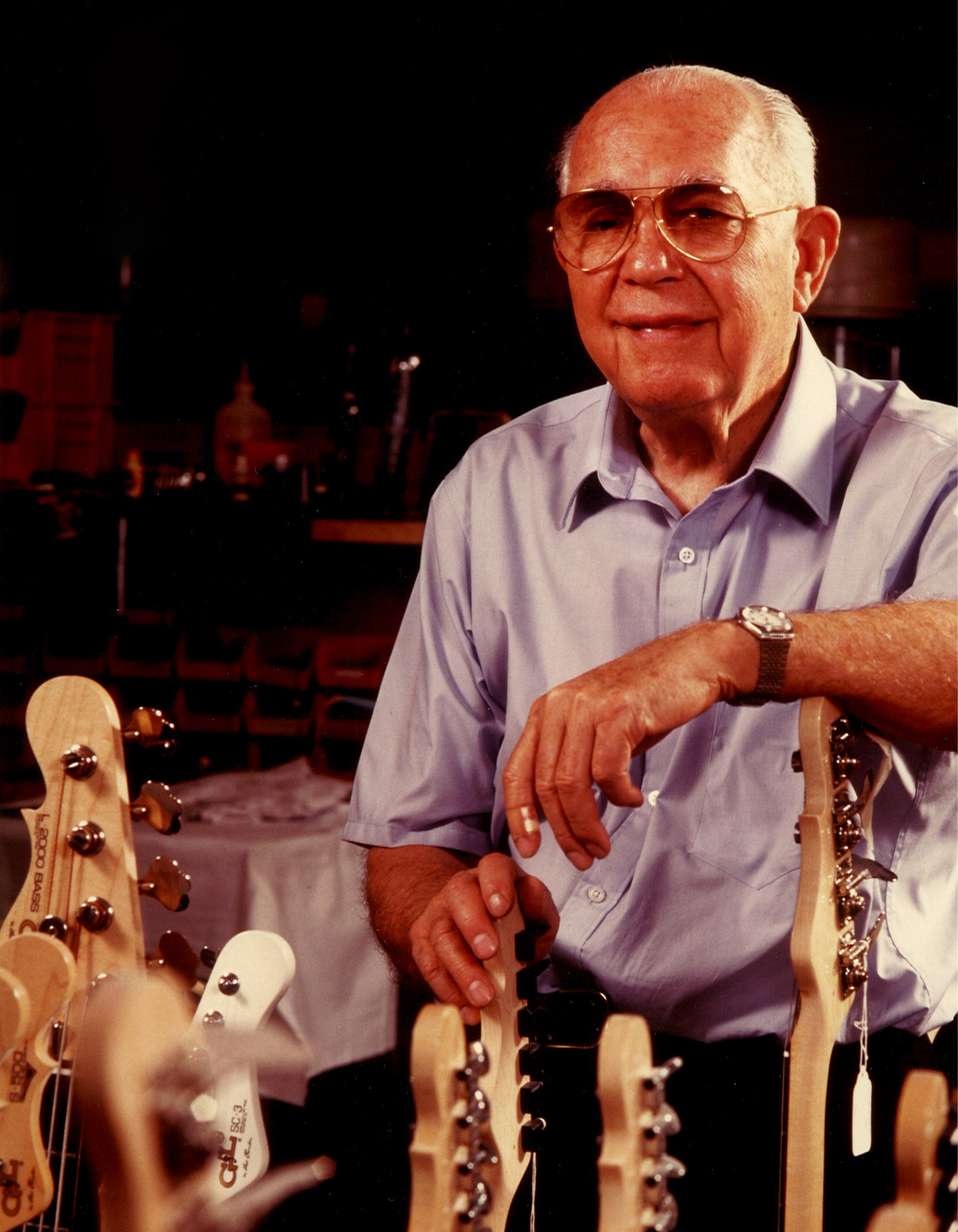
“His designs are some of the most identifiable in history, the tones some of the most iconic. Always in flux, always looking forward.” Dave McLaren of G&L guitars confirms Leo Fender was an even bigger genius than we thought.
This is a brief history of G&L Guitars, Leo Fender's swan song and a coda to the legacy he left to the music industry.
Calling Leo Fender the “godfather of guitar” doesn’t do him justice. The inventions and innovations he introduced to the community through his involvement in various companies continue to be a gold standard more than 80 years later.
“Leo was never one to rest on laurels,” says Dave McLaren, Owner and CEO of G&L. “He wasn’t just a trailblazer at the beginning, he symbolized continued evolution in guitar and amp manufacturing. A desire to always improve things.”
Throughout shifting styles, tastes, and technology, Leo’s designs endure. One of his driving forces was that he was never satisfied. Always chasing the next great idea, the next big thing. And while he was undisputedly a generational innovator, he relied heavily on one person: George Fullerton.
An electronics engineer at heart and by trade despite no official training, Leo, George and the Fender Instruments team rolled out their creations at a breakneck pace. They were revolutionary, and were the first company to mass produce guitars and amplifiers.

To get the right context of where Leo ended his career, it’s important to examine the genesis of G&L.
After dealing with a serious health issue, Leo felt it was time to move on. He sold Fender to CBS in 1965. But due to the changes they enacted and the decline in quality, he was determined to get back to his craft and create instruments worthy of his name and efforts.
In the early 1970s, Leo was approached to finance a startup that would become Music Man Guitars, and in 1975 he became president of the company. But by the end of the decade the relationship soured.
That’s where the G&L story begins.
New beginnings… and new innovations

With the partnership between Leo and Music Man’s management at a breaking point, Leo decided to found a new company. In 1979, he and George Fullerton founded G&L (short for George & Leo) with Dale Hyatt, a sales guru that worked with them during the Fender era.
The inception of G&L was born out of the desire to craft electric guitars and basses that improved on Leo’s previous work. He wanted this new line to fit any musical style and be tonally versatile enough to appeal to every player. Specific focus points were key aspects like upgrading electronics and bridge/vibrato systems, and it’s clear a lot of G&L instruments are modeled after some of Leo’s all-time classics.
All G&L instruments are manufactured in the same Fender Avenue facility in Fullerton, California where Music Man Guitars began and still remains. His private workshop, the epicenter of his creative spark, is still fully intact and toured by people from all over the world.
G&L’s instrument production is a combination of CNC machining and guitarcraft that allows a level of attention to detail and customization that’s much more difficult with larger-scale production.
Leo’s genius is on full display when it comes to the company’s manufacturing processes. He left no potentiometer unturned, and G&L introduced a number of novel guitar technologies to the industry.

His MFD (Magnetic Field Design) Pickups are constructed with special magnets and height-adjustable pole pieces. They aimed to provide what guitarists and bassists were seeking: sustain and tonal flexibility with reduced noise.
As guitarists were demanding more flexibility with electronics, Leo engineered the PTB (Passive Treble and Bass) tone control. It allows the player to dial in low and high end frequencies independently. And the Tri-Tone preamp system offers pickup selection between active and passive modes in addition to volume, treble, and bass controls.
Building on a previous design is the Dual-Fulcrum vibrato system, an evolved version of Fender’s Synchronized tremolo. Using two large pivot points instead of the traditional six wood screws, it promises better feel, smoother shift, more tuning stability, and can shift pitch up and down. It provides a lot of the features of a locking system without the upkeep headaches.

The saddle-lock bridge enhances string vibration transfer to the body and allows for more sustain, resonance, attack, and reduces string wear. Via an adjustment screw, the saddles can be compressed against each other, reducing side-to-side movement. This makes them act as a singular unit and aims to reduce or eliminate sustain killing lateral vibration.
Leo and Dale noticed the ’80s trend of vibratos with locking nuts and fine tuners catching on, and some of G&L’s mid-’80s models used Kahler tremolos while Leo worked on his own design. In 1989, he created a “patent pending” tremolo called the Leo Fender with Fine Tuners. It was compact and didn’t use energy-siphoning roller saddles that were common at the time.
Leo’s legacy

Over the years, G&L instruments struck a chord with artists across all genres – from rock players like Jerry Cantrell of Alice in Chains, Tom Hamilton of Aerosmith and Ben Gibbard of indie darlings Death Cab for Cutie to Eddie Willis of Motown legends The Funk Brothers, Daryll Hall, even John Salley of Beastie Boys. Leo’s latter-year designs continued to have wide appeal.
G&L has made a lifelong commitment to keeping Leo’s legacy alive. He respected his past work while always looking toward the future. His creed echoes his inventor spirit: “If it’s broken, fix it. If it’s not broken, make it better.”
By the time he formed G&L, Leo’s accomplishments in the music industry were already etched in the history books. He passed away on a rainy day in March of 1991, the weather a fitting allegory to the loss of this titan of the guitar community.
Serendipitously, that was also the day he finalized his last prototype. The fact that Leo continued innovating to the very end of his life, even as his health was sunsetting, is testament to his immutable creative heart.

Always thinking forward, Leo wanted G&L to continue to grow after he was gone – to make sure his employees were taken care of and allow them the freedom to take his legacy forward.
McLaren and the G&L team are dedicated to preserving the storied history and rich legacy of Leo’s designs, continuing to refine things as he would have wanted.
“G&L will always be willing to make changes. Leo Fender was a symbol of change and evolution for the benefit of musicians,” says Owner and CEO Dave McLaren. “But for any changes considered, we ask ourselves, ‘Would Leo have wanted it this way?’ We always want to feel that Leo would be proud of today’s G&L”.
Famously, Leo is quoted as saying, “G&L instruments are the best I have ever made.” And it’s clear that with the accomplishments he left behind, the legacy of his guitar designs is in safe hands.
Besides, who could outdo Leo but himself?







